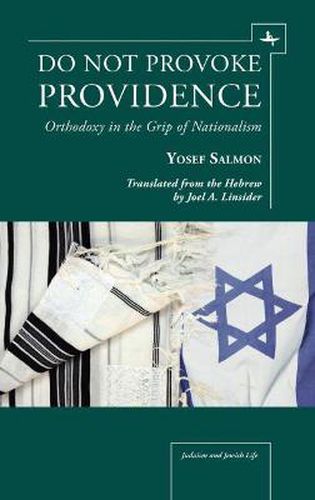Readings Newsletter
Become a Readings Member to make your shopping experience even easier.
Sign in or sign up for free!
You’re not far away from qualifying for FREE standard shipping within Australia
You’ve qualified for FREE standard shipping within Australia
The cart is loading…






Do Not Provoke Providence: Orthodoxy in the Grip of Nationalism deals with the whole complex of relations between the Land of Israel, the Jewish Torah, and the People of Israel from the Pre-Zionist Period until the establishment of the State of Israel. The book examines the dynamics of those relations through the modernization of Jewish society, and the problem of Jewish Identity vis-a-vis modernity. The discussion follows historical events in both philosophy and everyday life. It explores the anti-Zionist sphere and also discusses the attitudes toward the conflict of religion and nationalism in the world of Religious Zionism. The dispute between advocates of a religious concept of the community and proponents of a secular nation revolved primarily around perceptions of the ideal relationship between the religious and national entities. One group sought to make religion a tool of the nation; the other sought to make the nation a tool of religion.
$9.00 standard shipping within Australia
FREE standard shipping within Australia for orders over $100.00
Express & International shipping calculated at checkout
Do Not Provoke Providence: Orthodoxy in the Grip of Nationalism deals with the whole complex of relations between the Land of Israel, the Jewish Torah, and the People of Israel from the Pre-Zionist Period until the establishment of the State of Israel. The book examines the dynamics of those relations through the modernization of Jewish society, and the problem of Jewish Identity vis-a-vis modernity. The discussion follows historical events in both philosophy and everyday life. It explores the anti-Zionist sphere and also discusses the attitudes toward the conflict of religion and nationalism in the world of Religious Zionism. The dispute between advocates of a religious concept of the community and proponents of a secular nation revolved primarily around perceptions of the ideal relationship between the religious and national entities. One group sought to make religion a tool of the nation; the other sought to make the nation a tool of religion.